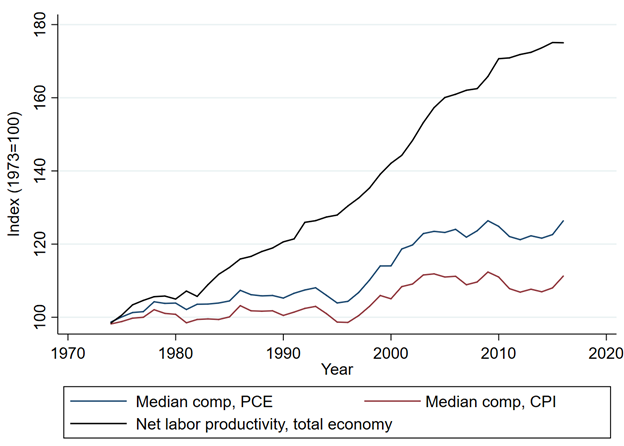piie.com/publications/w…
(1) Has the pay of workers on average kept up with productivity?
(2) Has the pay of the “typical” worker kept up with productivity?
(3) If productivity growth rises, does pay rise? 2/


Get real-time email alerts when new unrolls are available from this author!
Twitter may remove this content at anytime, convert it as a PDF, save and print for later use!

1) Follow Thread Reader App on Twitter so you can easily mention us!
2) Go to a Twitter thread (series of Tweets by the same owner) and mention us with a keyword "unroll"
@threadreaderapp unroll
You can practice here first or read more on our help page!






